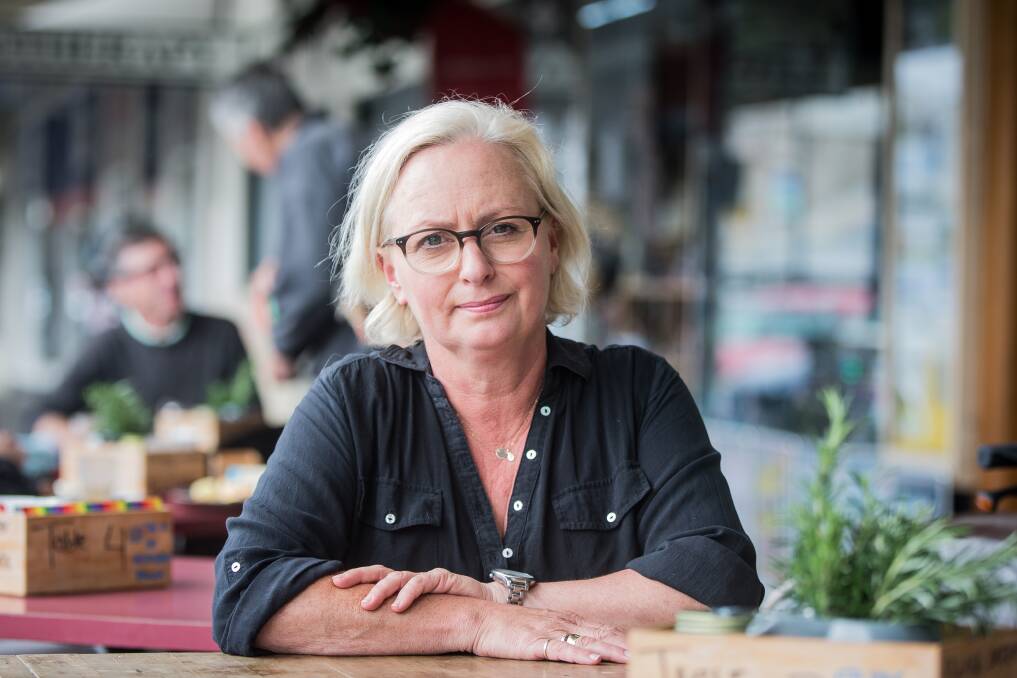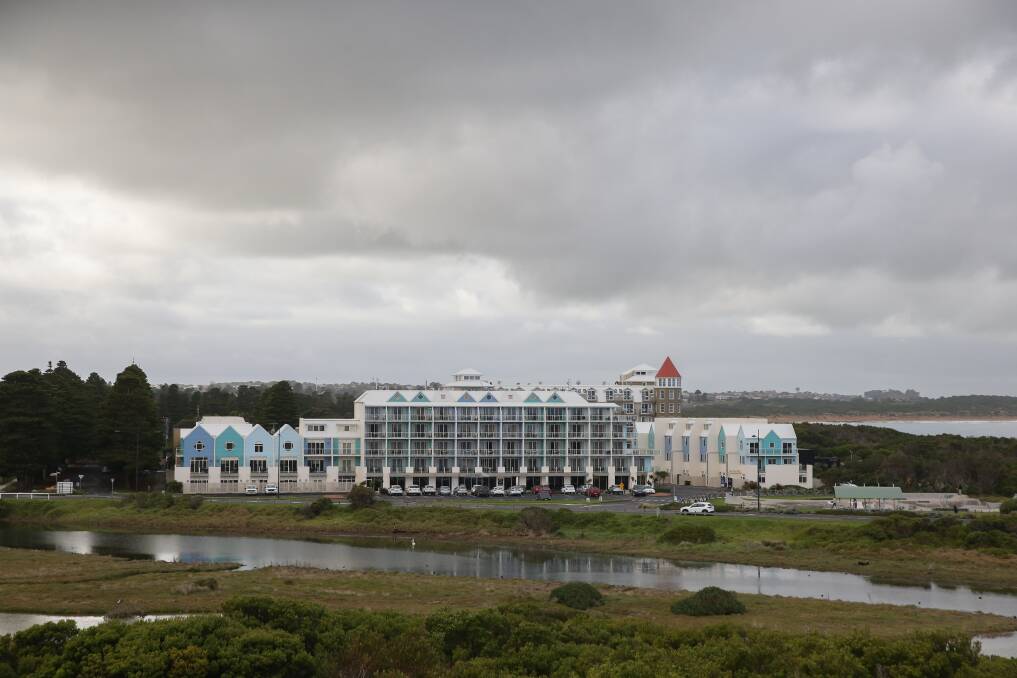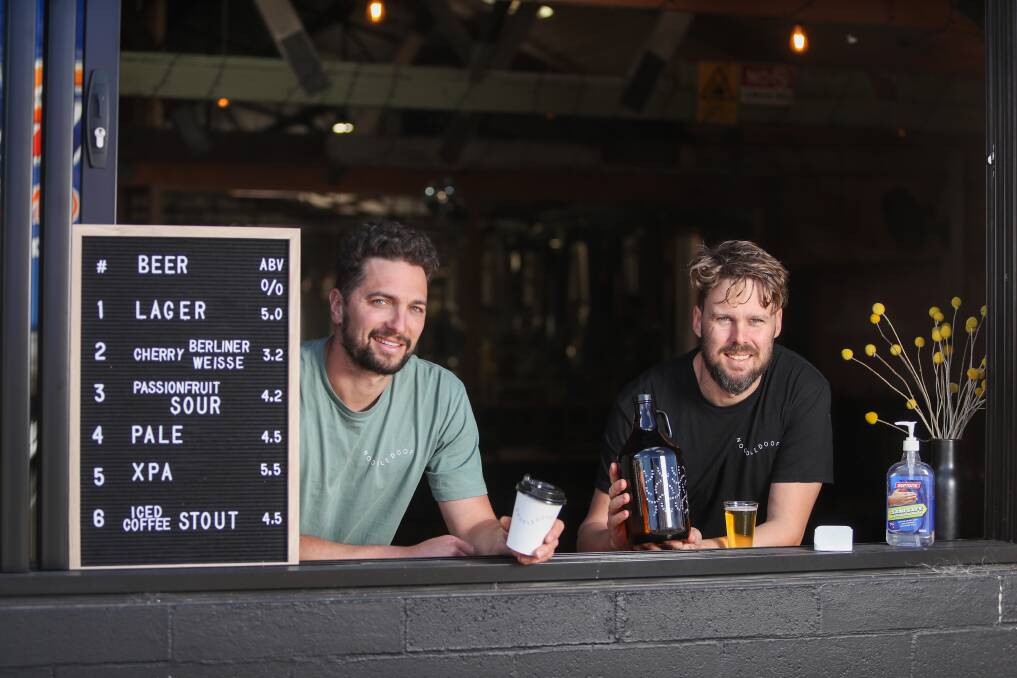
For 30 years Rebecca Nelson has taken advantage of long summer nights, opening her Port Fairy ice-cream shop late into the evening.
Subscribe now for unlimited access.
$0/
(min cost $0)
or signup to continue reading
Not this year.
Rather than the usual 10pm closing time, Ms Nelson will be shutting at 6pm for the foreseeable future.
"We just can't staff the nighttime icecream service," she said.
It's not for a lack of trying.
"We have been looking everywhere but there just aren't a lot of applicants," Ms Nelson said.
"It's a shame, but people will have to get their scoops in before 6pm."
Her business is just one of many in Port Fairy and throughout the country that are having to reduce the hours and even days they open because they simply can't find the staff.
Some businesses are even making the wrenching decision to close permanently as the peak season bounty they expected has turned into a cruel mirage.
Warrnambool's Lady Bay Resort has been looking to fill a number of positions, and with the hotel booked solid through summer, the situation is becoming critical.
General manager Lydia Kippe said she didn't know where the jobseekers had gone.
"They have disappeared into the abyss.
"It's been basically impossible to find experienced staff for a while but it's even difficult to find inexperienced staff now," she said.
Ms Kippe said normally at this time of year she would have a pile of at least half a dozen resumes on her desk.
"Right now I have zero," she said.
"We have a billion events coming up in the new year so I don't know what we're going to do. It's going to be a challenge."
Ms Kippe said students studying at Warrnambool's Deakin University campus had always been a good source of staff but two years of online lectures had dried up that stream of applicants.
Beyond that, she said she thought many young people had grown accustomed to not working. She said one applicant had applied several times for the same job but each time Ms Kippe contacted them they said they had found a job elsewhere.
"I think they were just ticking a box for JobSeeker," she said.
IN OTHER NEWS:
But there is scant evidence young people are actively declining work opportunities. The causes of the shortfall are more likely to be structural.

Through the pandemic Australia's net migration dropped into negative territory for the first time in more than a century. Compared to 2019, migration levels fell by 364,400 people in 2020.
Australia reopened its international border to foreign students and migrants on December 15 but migration numbers aren't expected to recover until well into 2023.
Among those numbers are 300,000 international students who are no longer living in Australia, many of whom work in the hospitality industry while they study.
Dylan Nelson, who co-owns The Hub in Port Fairy, said normally at this time of year people - often backpackers, international students or skilled migrants - "would just show up" looking for work.
"They're not turning up now," he said.
Mr Nelson said the business hadn't managed to find any staff but they were determined not to cut back opening hours.
"We're doing all of the work ourselves, so often working 70 or 80-hour weeks.
"The only reason we can even open is that we're a family business so everyone can pitch in," he said.
Other Port Fairy businesses haven't been so lucky. Gregory's has closed entirely while Conlan's Wine Store is closed through the Christmas-New Year period for the first time ever.
Conlan's owner Matt Dempsey said the lack of staff made it simpler to just close until January.
He said the hospitality workforce shortage - the latest estimates range between 100,000 and 200,000 vacancies nationwide - was a permanent change.
"This is the new normal for hospitality and the sooner people get used to that idea, the better," he said.
"We've already been shutting over weekends for the past few months."
He said any businesses expecting a big influx of applicants in the next few months were in for a shock.
"JobKeeper kept a lot of businesses ticking over, focused on peak tourist season as the light at the end of the tunnel," he said.
That light had been extinguished by the lack of workers, with businesses unable to capitalise on growing demand.
"Over the next six months you'll see the full toll of the staff exodus as small businesses run out of money because they just can't make up for their losses," Mr Dempsey said.
The lockdowns throughout the COVID-19 pandemic took a particularly heavy toll on hospitality, prompting a significant chunk of the workforce to quit the industry entirely.
Noodledoof co-owner Alex Carr said it would take years to rebuild, retraining staff to recover the skills that had been lost.
"Anyone in those long-term casual roles in hospitality have upskilled and gone on to different things. They've just left the industry," he said.
"Even permanent hospitality workers who weren't retained by their employers, many of them have gotten out."
Mr Carr anticipated the staffing shortage coming into the peak summer season and put up advertisements months ago. Only last week did he finally find staff.
"We put ads up back in September for positions we wanted to fill by December and tried every avenue, often advertising several times, which gets expensive," he said.

Even so, he said it was basically impossible to find experienced workers.
"Now everyone's finding it really hard to get trained people. That's hard because it takes resources, but customers also expect a certain level of service," he said.
"We've managed to find a few new staff who we are training up now.
"We will still probably be turning people away at the height of summer because we simply don't have the staff to just call up."
For the few workers who might want to move from places like Melbourne, a lack of affordable housing provides another stumbling block, particularly in places like Port Fairy.
Mr Dempsey said it was a major problem.
"Even if you could offer a competitive salary there's just no way a dishie could pay the rent around here," he said.
The Surf Coast and Colac Otway Shires, which take in popular summer towns like Lorne and Apollo Bay, recently changed local laws to allow long-term camping on private property in a desperate bid to house seasonal workers.
Moyne Shire Council said it had no plans to follow suit but it had developed a Key Worker Housing program along with the other south-west councils to try to address the issue in the long term.
Warrnambool City Council also had few plans in the short term, saying its options were limited. It doesn't bode well for the tourist crush as many people enjoy the liberty they've been deprived of for so long.
Rebecca Nelson said with so many venues reducing their hours or shutting entirely over the holiday period, a seat at a cafe or restaurant would be hard to get.
"It will be very different this year and I think visitors often will find it hard to find somewhere to eat," she said.
Now just one tap with our new app: Digital subscribers now have the convenience of faster news, right at your fingertips with The Standard:
Our journalists work hard to provide local, up-to-date news to the community. This is how you can access our trusted content:
- Bookmark https://www.standard.net.au/
- Make sure you are signed up for our breaking and regular headlines and newsletters
- Follow us on Facebook, Twitter, Instagram and LinkedIn
- Tap here to open our Google News page.
- Join our Courts and Crime Facebook group and our dedicated Sport Facebook group
- Subscribe


